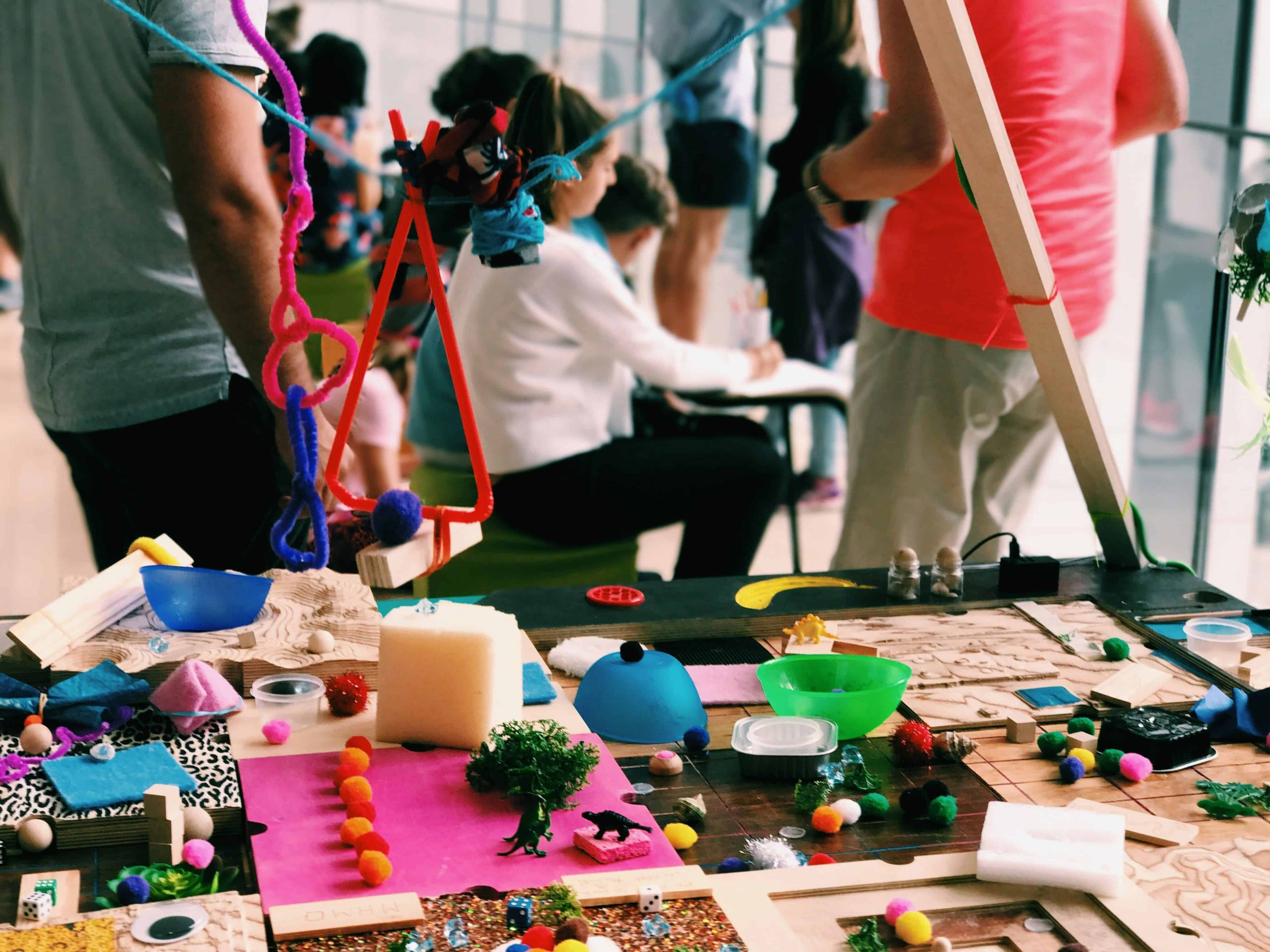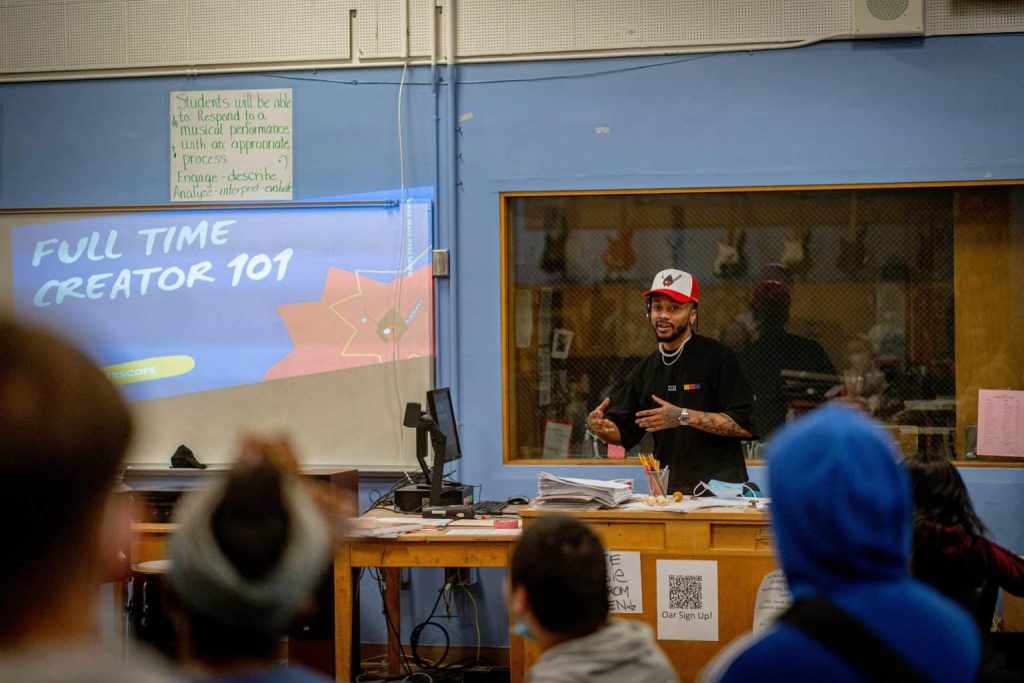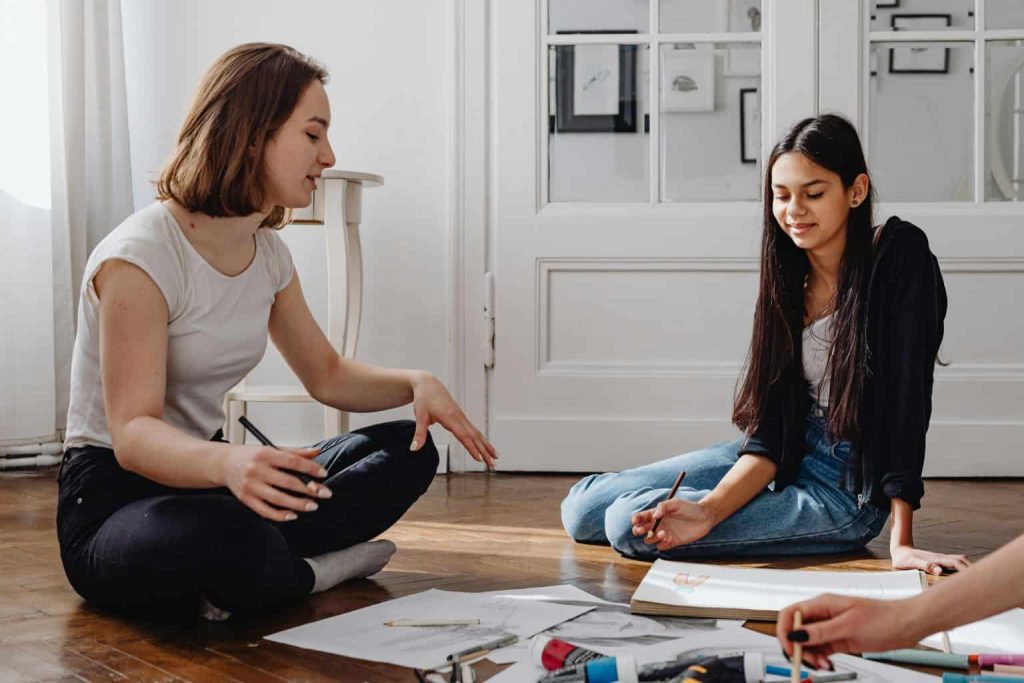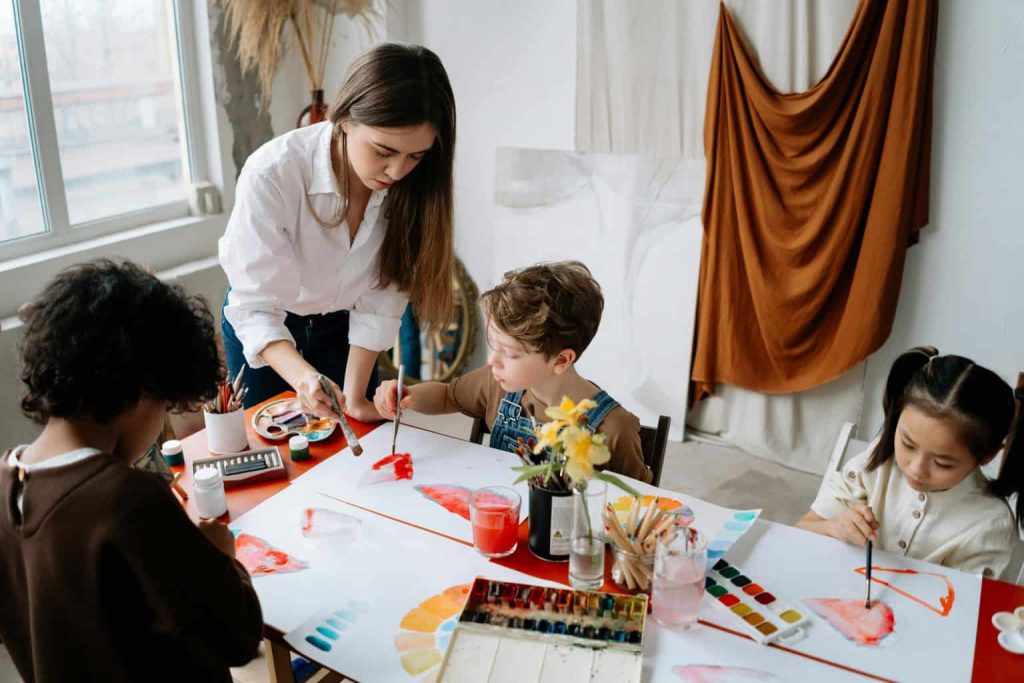
05 Apr Workshops and Training for Contemporary Artists in 2024
Contemporary artists are a reflection of our times, a canvas where ideas, perspectives, and emotions intersect. From traditional mediums to cutting-edge technologies, artists navigate through a myriad of possibilities to express themselves and engage with their audience. As the art world evolves, so do the demands placed on artists to stay relevant and innovative. The necessity for continuous learning and development is paramount for contemporary artists to thrive in this dynamic environment. Workshops and training programs serve as invaluable platforms for artists to hone their skills, cultivate their artistic voice, and navigate the complexities of the art industry.
Essential Workshops and Training Areas

Photo by LexScope
Technical Skills Development
Traditional Media
Traditional media forms the cornerstone of artistic expression, providing a rich tapestry of techniques that have endured through generations. Within this domain, artists immerse themselves in the intricate processes of painting, where each stroke of color on canvas becomes a vessel for emotion and narrative. The canvas becomes a portal where artists convey their deepest thoughts and interpretations of the world around them. Likewise, drawing emerges as a fundamental skill, where lines come alive under the artist’s hand, expressing intricate details and capturing the essence of their subjects with precision and imagination. Sculpture, on the other hand, offers a three-dimensional exploration of form and texture, with artists carving, molding, and shaping various materials to create tangible manifestations of their vision. Whether through the lush strokes of a brush, the delicate precision of a pencil, or the tactile manipulation of clay or stone, traditional media provides artists with a timeless foundation upon which to explore the depths of their creativity and communicate with audiences across time and space.
New Media
New media represents a paradigm shift in artistic expression, offering creators innovative platforms to explore and communicate their ideas. At the forefront of this evolution is digital art, which redefines the traditional canvas by leveraging technology to manipulate pixels and algorithms. In this digital realm, artists navigate a landscape of endless possibilities, where colors blend seamlessly and forms morph with a mere click or swipe, pushing the boundaries of visual storytelling. Video art emerges as another transformative medium, transcending the static confines of traditional imagery by weaving narratives through moving images and synchronized sound. With the ability to manipulate time and perspective, video art engages audiences in immersive experiences that challenge perceptions and evoke emotional responses. Furthermore, installation art harnesses the power of spatial design to transform environments into interactive landscapes of creativity. Through the strategic placement of elements, artists invite viewers to explore and engage with their surroundings, blurring the lines between observer and participant. New media, with its dynamic and multifaceted nature, empowers artists to break free from conventional constraints, fostering a renaissance of creativity that embraces technology as a catalyst for innovation and expression.
Emerging Technologies
As technology evolves, artists embrace emerging technologies at the forefront of creative experimentation. Artificial intelligence (AI) becomes a collaborator, challenging traditional notions of authorship and creativity. Virtual and augmented reality (VR/AR) redefine perception, transporting audiences into immersive realms of imagination. Bio-art merges science and aesthetics, sparking dialogue on ethics and the human condition through the manipulation of living organisms. These technologies inspire artists to push boundaries, blurring lines between human expression and machine intelligence, and exploring new intersections of biology, technology, and artistic vision. In this dynamic landscape, artists wield technology as a tool for innovation, redefining the limits of human imagination and reshaping the future of artistic expression.

Photo by Karolina Grabowska
Conceptual Development and Artistic Voice
The development of artistic concepts and individual voice, alongside critical thinking and engagement with art theory, underpins contemporary art movements and criticism, shaping artists’ statements and project development. Conceptualizing ideas and refining artistic vision involve exploration and experimentation while navigating galleries and institutions facilitating exhibition opportunities and networking within the art world. This multifaceted journey involves continual exploration, reflection, and engagement, enabling artists to contribute to the evolving discourse of creative expression and cultural dialogue.
Professional Development
Professional development in the arts encompasses a spectrum of skills and knowledge crucial for navigating the business aspect of the field. This includes understanding the intricacies of the business of art, such as marketing strategies tailored to individual artists, establishing appropriate pricing models, and mastering the art of grant writing to secure funding and support for projects. Artist career management involves building a robust portfolio that showcases one’s artistic journey and achievements, while networking facilitates connections and collaborations within the artistic community. Participation in artist residencies offers invaluable opportunities for creative exploration and exposure. Moreover, understanding intellectual property laws and copyright protection is paramount for safeguarding artistic creations and ensuring legal rights are upheld in the ever-evolving landscape of the art world.
Finding the Right Workshops and Training Programs
Finding the right workshops and training programs can be a transformative experience for artists. Here are some tips to guide your search:
- Consider your Artistic Goals and Interests.
- Research Online Resources and Directories.
- Look for Reputable Institutions and Experienced Instructors.
- Explore Online and In-Person Options.
- Consider Factors like Cost, Duration, and Format.

Photo by cottonbro studio
Conclusion
Participating in workshops and training programs is not just about acquiring new skills; it’s about embracing a mindset of continuous growth and exploration. By engaging in these opportunities, artists empower themselves to push boundaries, challenge norms, and create meaningful dialogue through their art. As the artistic journey unfolds, remember that the pursuit of excellence is a lifelong commitment.
Take the leap, explore, and immerse yourself in the vibrant tapestry of artistic expression. Your journey as a contemporary artist awaits.
Key Takeaways
Areas of Training | Key Focus |
Technical Skills Development | Mastering traditional and new media |
Conceptual Development | Refining artistic voice and vision |
Professional Development | Navigating the business of art |
FAQs
How do I know which workshops are right for me?
When considering which workshops are right for you, it’s essential to reflect on your artistic aspirations and interests. Identify the skills you aim to develop and seek out workshops that resonate with your goals. By aligning your choices with your desired outcomes, you can ensure a fulfilling learning experience.
Are online workshops as effective as in-person ones?
While online workshops offer flexibility and accessibility, the effectiveness of in-person workshops cannot be overlooked. In-person sessions often provide hands-on guidance and the opportunity for immediate feedback, fostering a more immersive learning environment. Ultimately, the choice between online and in-person workshops depends on your learning style and preferences.
How can I find affordable workshops and training programs?
To find affordable workshops and training programs, explore various resources available online and within your local community. Look into platforms that offer scholarships, grants, or discounted rates for aspiring artists. Additionally, consider leveraging free resources and self-paced learning options, which can help you acquire valuable skills without a significant financial investment.
What if I'm a beginner with no formal art education?
If you’re a beginner without a formal art education, don’t be discouraged. Many workshops and training programs cater to artists at all skill levels, including those starting from scratch. These programs often provide foundational knowledge and hands-on instruction, helping beginners build confidence and develop essential artistic techniques. Embrace your journey as a novice artist, and explore opportunities that nurture your creative growth and passion.
Understand the “Challenges in Global Art Communication” and know how to address barriers to effective communication and collaboration across diverse cultural and geographical contexts.

